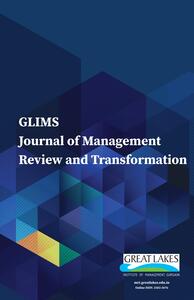
1 Indian Institute of Management Bangalore, Bengaluru, Karnataka, India
Creative Commons Non Commercial CC BY-NC: This article is distributed under the terms of the Creative Commons Attribution-NonCommercial 4.0 License (http://www.creativecommons.org/licenses/by-nc/4.0/) which permits non-Commercial use, reproduction and distribution of the work without further permission provided the original work is attributed.
The workings of monetary policy have often been construed as a “black box.” Not only does the nature of transmission channels vary across the economies, the significance and dominance of one channel over another is also a function of the nature and developmental stage of the economy under consideration. In this article, we attempt to understand the different channels of monetary policy operation and study which is(are) the dominant channel(s) in India. Our primary focus then is to identify the different hurdles that prevent the efficient transmission of monetary policy and assess few policy prescriptions to mitigate them. A simultaneous view from the perspective of business-government-society is also taken.
monetary policy, interest rate transmission, channels of monetary operations, interest rate channel, asset price channel, credit channel
Bernanke, B. S., & Blinder, A. S. (1988). Credit, money, and aggregate demand (NBER Working Paper No. w2534).
Bernanke, B. S., & Gertler, M. (1995). Inside the black box: The credit channel of monetary policy transmission, Journal of Economic Perspectives, 9(4), 27–48. https://doi.org/10.1257/jep.9.4.27
Khundrakpam, J. K., & Jain, R. (2012). Monetary policy transmission in India: A peep inside the black box (MPRA Paper 50903), University Library of Munich.
Meltzer, A. (1995). Monetary, credit and (other) transmission processes: A monetarist perspective. The Journal of Economic Perspectives, 9(4), 49–72.
Mohanty, D. (2012, August 12). Evidence of interest rate channel of monetary policy transmission in India. RBI Working Paper Series No. WPS (DEPR): 6/2012.
Obstfeld, M., & Rogoff, K. (1995). The mirage of fixed exchange rates. Journal of Economic Perspectives, 9(4), 73–96. https://doi.org/10.1257/jep.9.4.73
Raj, J., Rath, D. P., Mitra, P., & John, J. (2020). Asset quality and credit channel of monetary policy transmission in India: Some evidence from bank-level data. RBI Working Paper Series No. WPS (DEPR): 14/2020.
Ramey, V. A. (1993). How important is the credit channel in the transmission of monetary policy? (NBER Working Paper No. w4285).
Romer, D. H. (1990). New evidence on the monetary transmission mechanism. Brookings Papers on Economic Activity, 21(1), 149–214.
Taylor, J. B. (1995). The monetary transmission mechanism: An empirical framework. Journal of Economic Perspectives, 9(4), 11–26. https://doi.org/10.1257/jep.9.4.11
Tobin, J. (1969). A general equilibrium approach to monetary theory. Journal of Money, Credit and Banking, 1(1), 15–29. https://doi.org/10.2307/1991374
Web Resources
https://www.bis.org/publ/qtrpdf/r_qt1503h.pdf
Monetary policy in India by Rakesh Mohan (BIS Paper No. 35).
Evidence of Interest Rate Channel of Monetary Policy Transmission in India, RBI Working Series Paper (2012)
Monetary Policy Transmission in India – Recent Trends and Impediments, RBI Working Paper
Zhou Xiaochuan: Some considerations in the study of monetary policy transmission, Speech by Mr. Zhou Xiaochuan, Governor of the People’s Bank of China, Beijing, 13 April 2004
The Monetary Transmission Process: Recent Developments and Lessons for Europe, Deutsche Bundesbank
The monetary transmission mechanism in the United States: some answers and further questions, Kenneth N Kuttner and Patricia C Mosser, Federal Reserve Bank of New York
The transmission mechanism of monetary policy in a stabilizing economy: notes on the case of Brazil, Francisco L. Lopes
Winners and Losers from Monetary Policy, Renee Haltom, Federal Reserve
https://www.fool.com/retirement/2018/11/29/heres-how-the-federal-reserve-can-affect-social-se.aspx